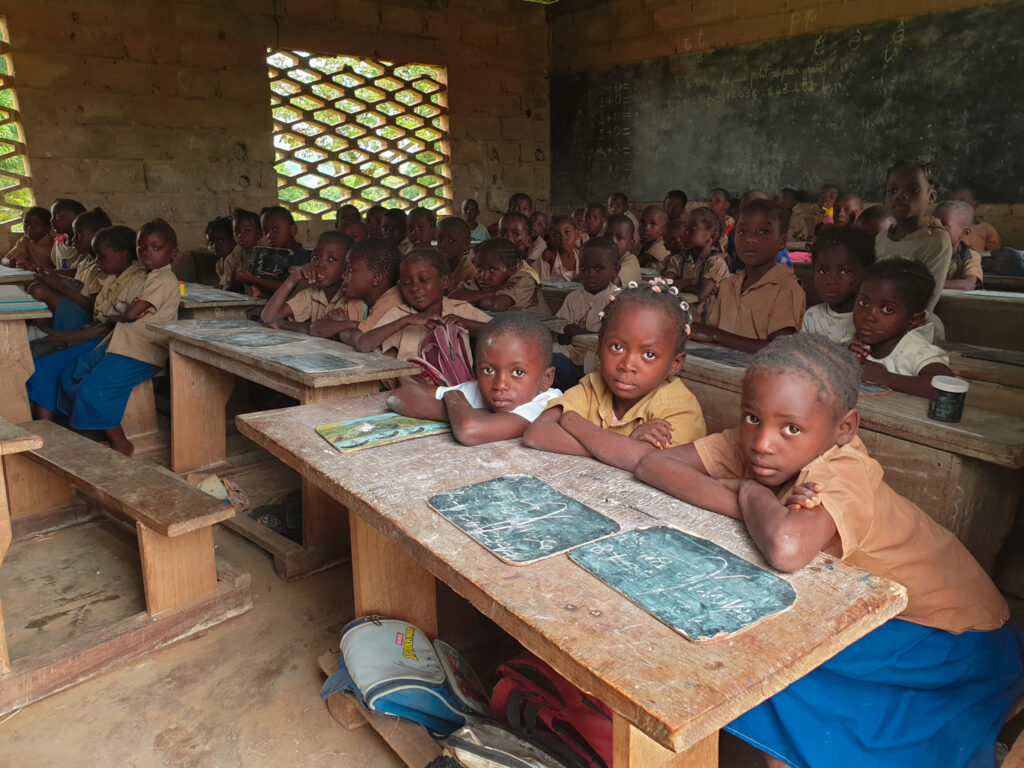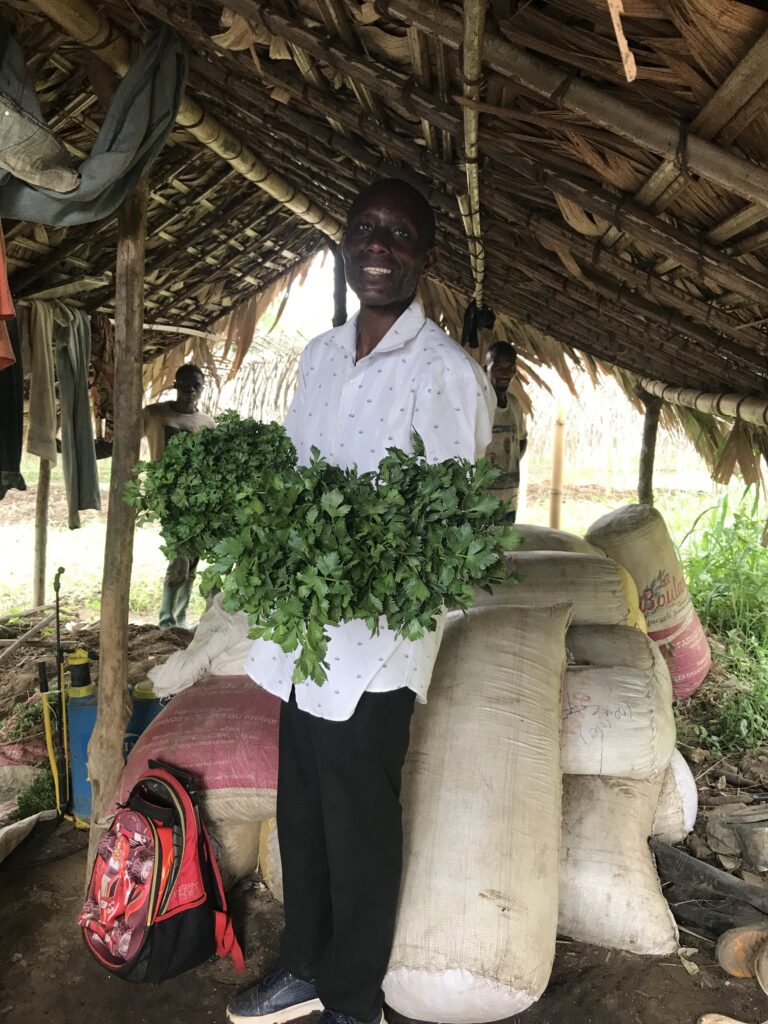 Mbemba Mahoungou School in Mindouli, in the Pool department. © WFP/Gabriel Specht
Mbemba Mahoungou School in Mindouli, in the Pool department. © WFP/Gabriel Specht
Between May 6th and 14th, the Seeds for Tomorrow, also known as ‘Enhancing Family Farmers access to local markets in the Republic of Congo through South-South Cooperation’, project team embarked on a pivotal mission across the Republic of Congo, targeting the departments of Bouenza, Pool, and Plateaux. This initiative, aimed at enhancing family farmers’ access to local markets through South-South cooperation, seeks to bridge the gap between local agricultural production and school feeding programmes.
The mission’s primary goal was to visit 10 schools and 10 producer groups, all pre-identified for the implementation of homegrown school feeding. Throughout their journey, the team engaged in comprehensive assessments to identify challenges and opportunities in connecting local farms with school feeding initiatives.
Connecting Communities: Conversations and Collaborations
During the visits, the Seeds for Tomorrow team held meaningful discussions with community representatives, including local authorities, technical staff, inspectors, school principals, and producer group representatives. These conversations were crucial in understanding the unique dynamics of each region and tailoring the project’s implementation to meet local needs effectively.

In Mindouli, located in the Pool district, local smallholder farmer Franco Dennis Nkuka shared his enthusiasm for the project, stating, “The implementation of this project will be a real opportunity for us. We will be able to sell our vegetables locally and to schools where children will eat locally produced food. And when you produce a good product, the demand for supply can also increase.” His words underscore the potential for local farmers to thrive while contributing to the nourishment of schoolchildren.
Franco Dennis Nkuka ©WFP/Nadia Goodman
Strategic Selection and Criteria
The selection of schools and smallholder farmers follows specific criteria established during the Technical Committee meeting in March 2024. These criteria include the proximity between schools and producers, the productivity of the groups, and the diversity of school locations, encompassing urban, rural, and peri-urban areas. This strategic approach ensures that the project’s benefits are widespread and inclusive.
About the Seeds for Tomorrow Project
Launched in September 2023, the Seeds for Tomorrow project is a collaborative effort spearheaded by the Centre of Excellence against Hunger of the World Food Programme (WFP) in Brazil and WFP Congo. It partners with the Government of the Republic of Congo, the Government of Brazil, and the United Nations Office for South-South Cooperation (UNOSSC). The project is financed by India, Brazil, and South Africa Fund for Poverty and Hunger Alleviation (IBSA Fund).
The primary aim of the project is to share with the Ministry of Agriculture, Livestock, and Fisheries (MAEP) and the Ministry of Preschool, Primary, Secondary, and Literacy Education (MEPPSA) to leverage knowledge and innovations from Brazil and other IBSA partners. By integrating these insights into family farming and school feeding programs, the project seeks to enhance food security and educational outcomes in the Republic of Congo.
Over the course of two years, the project will focus on the departments of Bouenza, Plateaux, and Pool. It will involve institutional strengthening of relevant ministries and extensive training for family farmer cooperatives and schools.
Looking Ahead
As Seeds for Tomorrow progresses, it promises to transform local agricultural landscapes and school feeding programmes in the Republic of Congo. By fostering strong links between local farmers and schools, the project aims to create a sustainable model that not only boosts local economies but also ensures that children receive nutritious, locally produced food. The journey has just begun, and the Seeds for Tomorrow project stands as a beacon of hope and progress for communities across the Republic of Congo.




